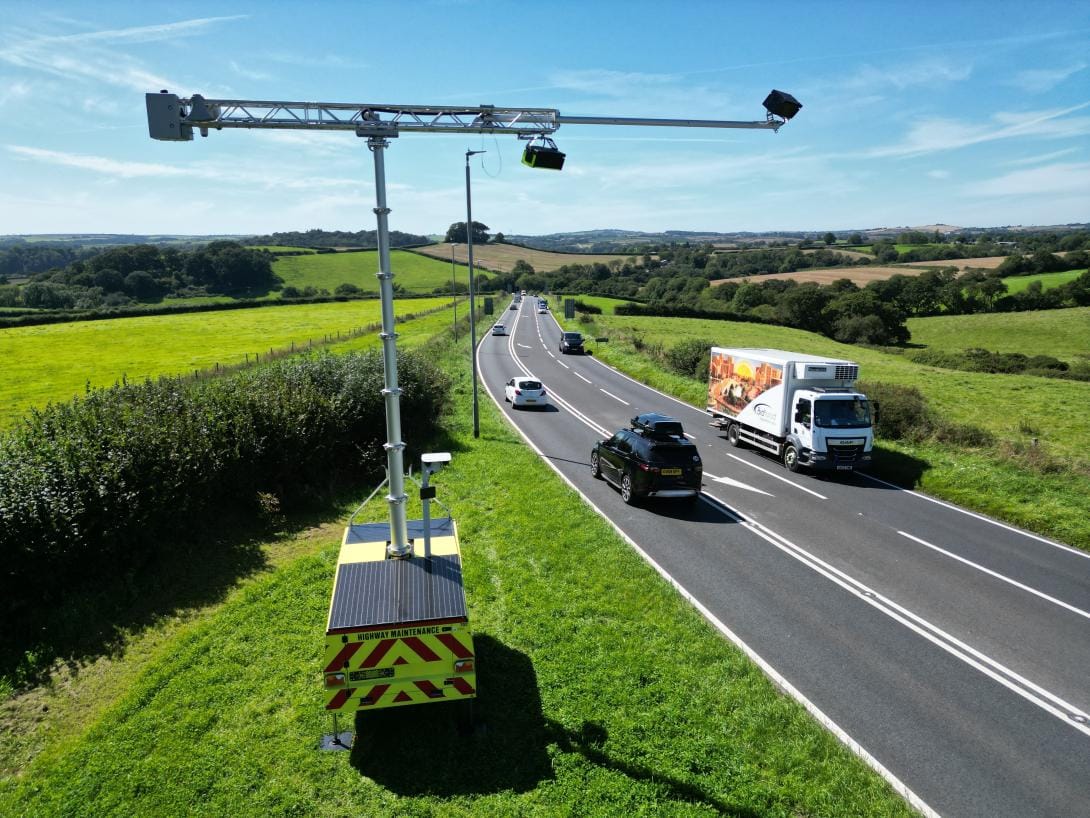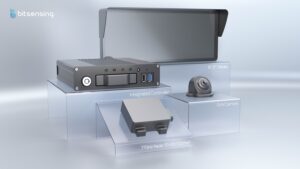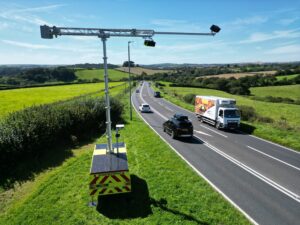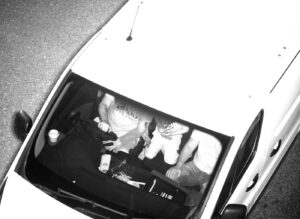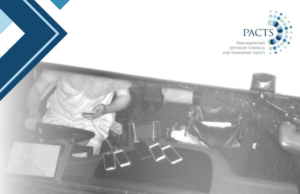A trailer carrying Acusensus artificial intelligence cameras to detect road traffic offences is being deployed on Tavistock Road in Derriford to help protect road users in the area.
The system captures images of passing vehicles to identify whether or not passengers are wearing seatbelts and whether the driver is using a mobile phone at the wheel.
Although the cameras use AI to detect potential offences, these images are subsequently reviewed by a human. If an offence has been correctly identified, the driver will either be sent a warning letter or a notice of intended prosecution, depending on the severity. Images of complying vehicles are not retained.
Adrian Leisk, Head of Road Safety for Devon and Cornwall Police, said he wanted to give all road users fair warning that the cameras will be operational. “There have been several tragic collisions in Devon and Cornwall very recently where people have died or been seriously injured because they were not wearing a seatbelt,” he said. “Similarly, we know that using a mobile phone while driving is highly dangerous and significantly increases the risk of a collision. We don’t want to catch people – we just want motorists to stay safe by wearing a seatbelt and not using their phones while driving. But if you are caught, you can expect either a driver education course or a fine and penalty points.”
This message was backed up by Councillor Mark Coker, the Council’s Cabinet Member for Strategic Planning and Transport, who added: “Road safety is hugely important and I thoroughly support the deployment of these cameras.
“Wearing a seat belt is the single most effective way to prevent death and serious injury in the event of a collision. Drivers and passengers who buckle up are 45% less likely to die and 50% less likely to be injured in a crash.
“Similarly, you are four times more likely to be involved in a crash if you use your phone. Nationally in 2022, there were 22 people killed and 674 injured in collisions where a driver using a mobile phone was considered to be a contributory factor.
“Please stay safe and don’t get caught out.”
Data from previous deployments of the Acusensus technology in Devon and Cornwall appear to show a positive effect on driver behaviour.
The safety partnership found that during their deployment on the A30 and A38 in 2023, the cameras detected a phone offence rate of 0.31% and seat belt offence rate of 0.38%. The first set of three deployments in 2024 saw a dramatic reduction in both figures, with seat belt offence rates falling to 0.22% and mobile phone offence rates dropping to 0.08% – the lowest rate ever detected using this technology.
Mr Leisk added: “These early results are extremely promising and we hope to see the effect of this technology reflected in collision data in the future. The purpose of these cameras is to both reduce the number of collisions that take place due to distraction and to prevent death and serious injury in the event of a collision.”
(Picture shows a previous deployment in the area, courtesy Plymouth Council/Acusensus)



